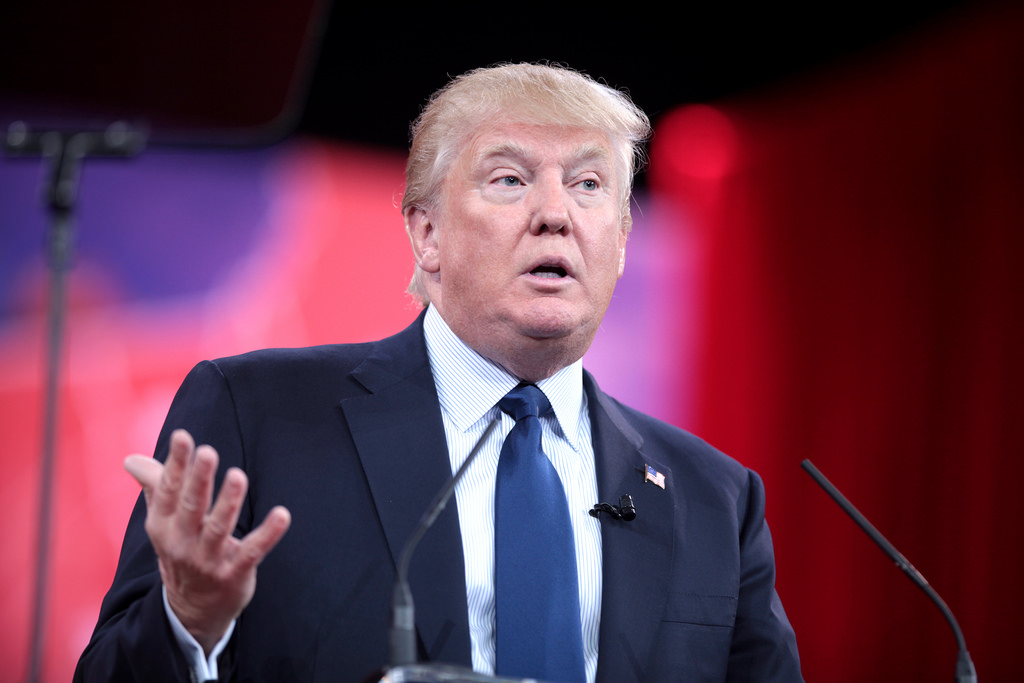We asked University of Maryland students and faculty, as well as other members of the College Park community, “What does a Trump America look like to you?”
Here’s what they had to say:
“I don’t want to give in to the hysteria of, ‘Everything’s going to fall apart,’ because I don’t think that’s true, because I think our country is stronger than that,” Swanson said. “It’s hard to say what’s going to happen, but I certainly don’t have a good feeling about it.”
—Katherine Swanson, senior government and politics major, SGA president
“I think his policies will be bad. I think he will be a bad president. I think he will set a terrible example for people growing up learning about the political process. I think his cabinet picks show that he is not ready for this office…
Trump claims he wants to drain the swamp, and I guess what he meant was, ‘I want to drain the swamp so I can scoop up all the swamp monsters who live at the bottom of the swamp and appoint them to very high levels of political office.'”
— Patrick Cochran, senior French and government and politics major
“I feel that Trump’s America looks far from American … I feel there will be a disconnect between those in the country and the people who are supposed to be leading it. Trump’s America will bring on an era of division that reflects an ideal we as a country should be avidly trying to remake.”
— Kelsey Edwards, sophomore communication major
“The North American Free Trade Alliance — I would like to see how [Trump] redoes that. I would like to see how our relationship with Mexico goes. I hope its positive. I definitely believe [Trump’s] going to build this wall.”
“Once everybody’s situation improves, and I think they’ll say, ‘Oh wait, this isn’t the worst thing ever. It’s not like [Trump’s] imposed segregation again or … internment camps. Maybe he wanted to make a positive step in the right direction.'”
— Shannon Vingo, senior economics major
“The fact that a lot of people feel there is something illegitimate about Donald Trump as president is something that is relatively unprecedented, or at least in modern times.
As an academic I’m supposed to be neutral and objective. As a citizen of the United States, I’m terrified. … Donald Trump has said many controversial things. Politicians often change their minds. They pander to the public, they pander to different groups at different times and that may cause inconsistencies. The public may change its mind and they may pander to it after the public changes its mind. … But I think Donald Trump has taken that to a new level and I think that makes it hard to predict exactly what he’s going to do.
[Trump made] highly racially charged comments, the likes of which we really haven’t seen since the 1968 election. And along with that there’s a lot of ideas that he proposed, like a ban on Muslims entering the country, like kicking out 12, 13 million individuals in the United States who don’t have documentation. And it’s not really clear if he was doing that to offend, because he knew it would be popular with a certain group of people or if he’s honestly going to try to pursue some of these policies.
I am nervous about his commitment to democratic institutions. I’m nervous what that bodes for the future of elections in the United States.”
— Ethan Kaplan, economics professor
— Maria Bunnewith, journalism professor
“I don’t think he’s expressed much interest in trying to building bridges, but I do hope he’ll come around to represent all Americans, regardless of their gender or sexual orientation or identity or race or immigrant status.”
“One thing I am very concerned about is his attitude toward the immigrant population, and his statement that he would actively work to deport people who are here without a legal status. I’ve met people who are immigrants in our community who are very scared about the impact that [Trump’s presidency] will have on their families, on their communities.”



